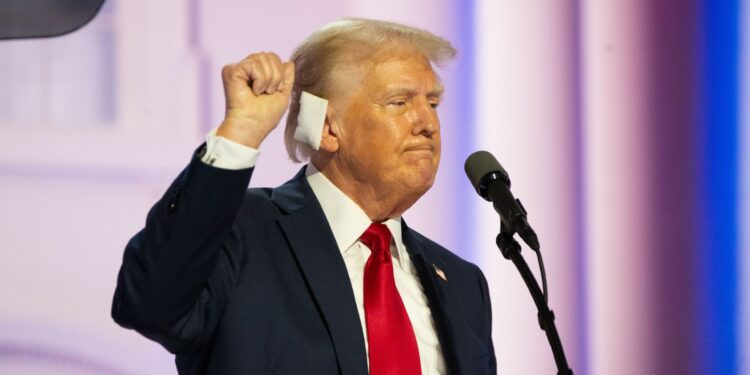Economists are raising serious concerns about the possibility of renewed inflation in the United States if Donald Trump’s proposed policies are implemented.
According to Bloomberg, the Federal Reserve is preparing to cut interest rates in September, thanks to an improving labor market and moderate consumer spending.
The Fed’s preferred measure of inflation recently fell to 2.6%, nearing its 2% target, suggesting that a long-awaited soft landing may be within reach.
However, San Francisco Fed President Mary Daly warned that “we don’t want to get to a point where we start to see the labor market weaken significantly — to falter — because by that time, it’s often too late to turn it back around.”
Trump’s policies
Economists warn that Trump’s proposed tax cuts, higher tariffs, and immigration restrictions could all reverse recent economic progress made under the Biden administration.
Democrats argue that these measures could lead to a sharp rise in inflation and destabilize global trade.
According to Bloomberg, Americans are still dealing with higher costs for goods than pre-pandemic levels.
While the Republican Party continues to blame President Joe Biden for continued inflation, experts say Trump’s policies could undo the Fed’s hard-won achievements in stabilizing the economy.
The agency points out that the danger posed by Trump’s economic approach is underscored by the current political climate. While Democrats tout the strengths of the booming U.S. economy, low unemployment and an imminent victory over inflation, Trump’s followers remain skeptical.
A growing number of analysts believe that the Republican Party’s focus on tax cuts that primarily benefit the wealthy, proposed tariff increases that spark another trade war with China, and immigration restrictions that Republicans blocked earlier this year could damage the delicate balance that has been struck so far, according to the agency.
The Dollar Dilemma: Will It Weaken Under Trump?
In a detailed analysis by Reuters, Citi strategists said a Trump presidency is unlikely to weaken the US dollar, despite the former president’s public comments suggesting a desire for such an outcome.
Experts quoted by Reuters insist that the US elections will ultimately be positive for the dollar, and these expectations are likely to be fully priced in by November 5.
“We reiterate why we believe the election will be positive for the dollar in our latest currency market forecast,” the strategists said. “However, we recognize that Trump’s comments in a recent interview imply a desire to weaken the US dollar.”
Experts advise caution, noting that market sentiment can be extremely volatile, especially as elections approach.
Reuters quotes them as recommending waiting until August or September to consider buying US dollars, as this period historically witnesses more active trading in anticipation of election results.
Analysts also highlight Trump’s focus on trade and its effects on currency markets, particularly with regard to the EUR/USD exchange rate.
Rising economic risks
Bloomberg sees that as the United States prepares for its presidential election, economic risks are unusually high.
President Biden is facing pressure to abandon his re-election bid amid calls from Democrats after a lackluster debate performance.
In contrast, Donald Trump, having survived an assassination attempt and accepted the Republican nomination, continues to promote policies that economists warn could lead to inflation and market instability.
Trump’s recent speech at the Republican National Convention featured a mix of controversial topics and remarks, including references to fictional characters and controversial political figures, according to Bloomberg.
Many see his announcement of Ohio Senator J.D. Vance as his running mate as a sign of a far-right shift in the Republican Party, paving the way for major policy shifts if he wins the presidency.
The upcoming US presidential election brings with it a host of economic uncertainties, according to Bloomberg. Trump’s proposed policies could have a significant impact on inflation and market stability, while global trade dynamics continue to evolve.
Economists and market strategists stress the need for careful navigation during these turbulent times, as the outcomes of these policies and the elections themselves remain unpredictable.



